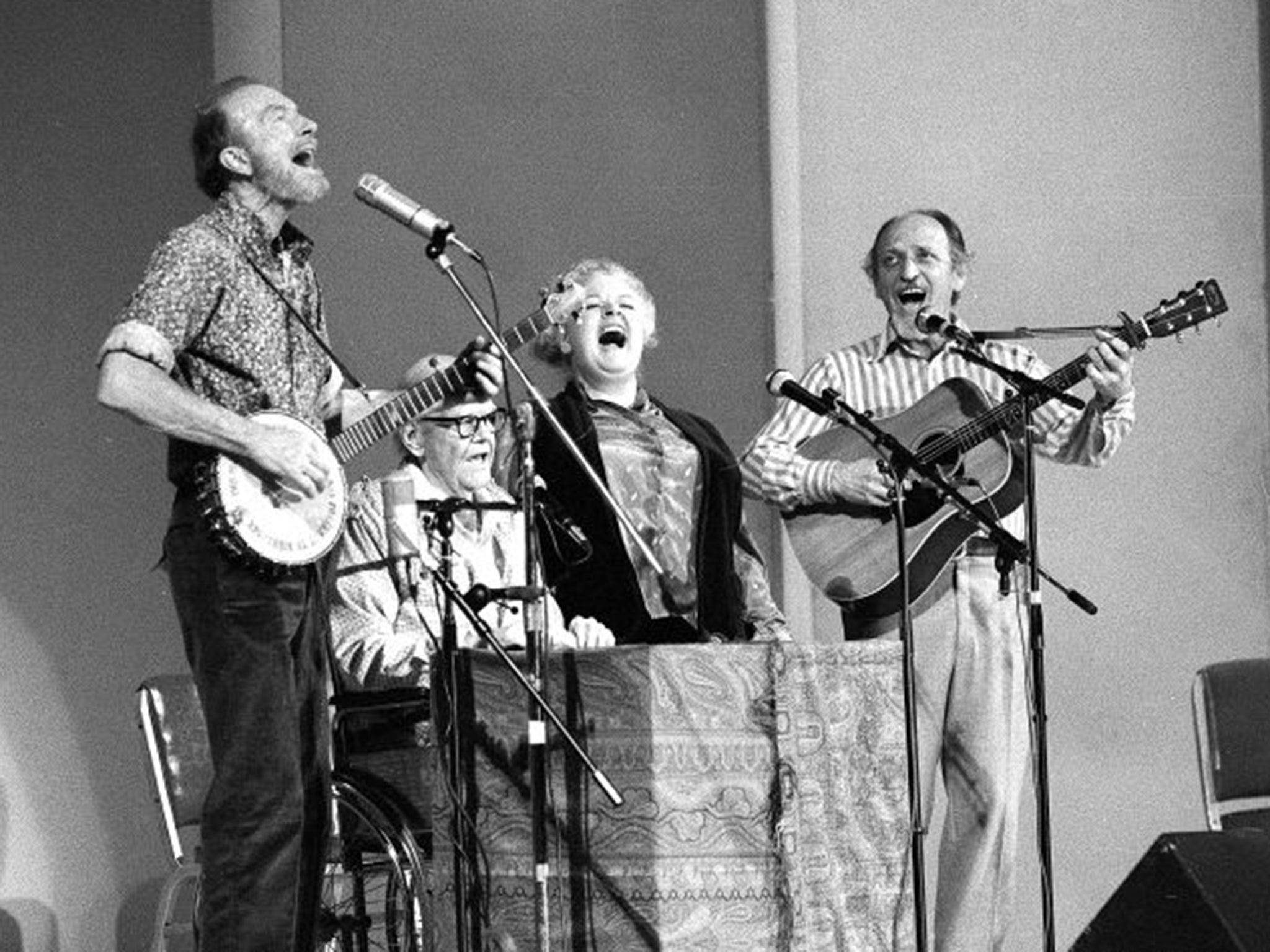Ronnie Gilbert: Singer who co-founded the Weavers with Pete Seeger and helped lead the folk resurgence of the 1960s
The Weavers became one of the most influential musical groups of their era

Your support helps us to tell the story
From reproductive rights to climate change to Big Tech, The Independent is on the ground when the story is developing. Whether it's investigating the financials of Elon Musk's pro-Trump PAC or producing our latest documentary, 'The A Word', which shines a light on the American women fighting for reproductive rights, we know how important it is to parse out the facts from the messaging.
At such a critical moment in US history, we need reporters on the ground. Your donation allows us to keep sending journalists to speak to both sides of the story.
The Independent is trusted by Americans across the entire political spectrum. And unlike many other quality news outlets, we choose not to lock Americans out of our reporting and analysis with paywalls. We believe quality journalism should be available to everyone, paid for by those who can afford it.
Your support makes all the difference.Ronnie Gilbert lent her majestic contralto voice to the folk revival as a founder and sole female member of the Weavers, the celebrated quartet led by Pete Seeger. Formed by Seeger, Gilbert, Lee Hays and Fred Hellerman, the Weavers became one of the most influential musical groups of their era, both musically and politically.
Seeger described the group's sound as that of "two low baritones," a "split tenor" and "one brilliant alto" – Gilbert. Her voice could be heard, blending with but also rising over the others, in standards such as "This Land Is Your Land", "If I Had a Hammer", "On Top of Old Smoky", "Goodnight, Irene", "Kisses Sweeter than Wine" and "Tzena, Tzena, Tzena".
Some of their songs became unofficial anthems of the movements for civil rights, workers' rights and other causes. "We still had the feeling that if we could sing loud enough and strong enough and hopefully enough, it would make a difference," Gilbert said.
The Weavers gained popularity by word of mouth, performing at hootenannies and union halls. They took off in 1949, when they began an extended engagement at the Village Vanguard club in New York. During the Red Scare of the 1950s, they were among many blacklisted performers. The scarcity of performance and recording opportunities forced them to break up, but they reconvened for an acclaimed sold-out concert in New York's Carnegie Hall in 1955. After Seeger embarked on a solo career, the remaining Weavers performed with Erik Darling and other musicians before disbanding in the mid-1960s.
Born in New York to immigrants from Eastern Europe, Gilbert began her musical career in the late 1940s, in an era that she described as "that strange time after World War II, when already the world was preparing for cold war." She went on to a theatrical career, performing under directors including Joseph Chaikin and Harold Pinter. Later, she played the labour activist Mary Harris "Mother" Jones in a one-woman show. She also received a degree in clinical psychology and practised for a whilec.
But she remained a musician throughout her life, performing and recording with Holly Near and releasing several solo albums. The Weavers performed at Carnegie Hall in 1980, commemorating their performance of 25 years earlier. It was a sell-out crowd again.
Her marriage to Martin Weg ended in divorce. She married Donna Korones in 2004, when San Francisco allowed same-sex marriages. Those marriages were later ruled invalid.
EMILY LANGER
Ruth Alice "Ronnie" Gilbert, singer: born New York 7 September 1926; married 1950 Martin Weg (marriage dissolved), 2004 Donna Korones; died Mill Valley, California 6 June 2015.
© The Washington Post
Join our commenting forum
Join thought-provoking conversations, follow other Independent readers and see their replies
Comments